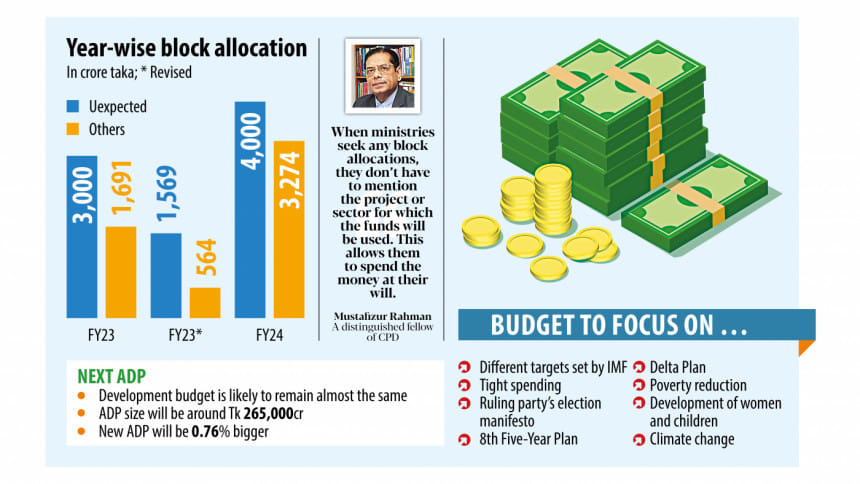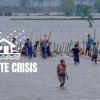Govt asks ministries to brace for further belt-tightening in budget

The finance ministry has instructed ministries and divisions not to seek any block allocation in the upcoming budget to avoid misuse of the hard-earned money since the government's capacity to spend has been constrained by lower tax collections.
Last week, the finance division issued a circular asking all ministries and divisions to send by April 29 their budget proposals for 2024-2025 and their expenditure plans for the following two financial years to help prepare the midterm budgetary framework.
"The allocation has to be made against specific programmes which will be helpful in achieving strategic objectives," the circular said.
The further belt-tightening by the government comes as the country continues to struggle to raise enough taxes to maintain its expenses and bankroll development projects on its own. Bangladesh's revenue as a share of GDP is among the lowest in the world and significantly below peers.
The finance division is going to frame the upcoming budget in light of the targets set by the International Monetary Fund (IMF) along with its $4.7 billion loan programme and recommendations made by the technical mission from the lender.
The block allocations are the funds that are usually earmarked to address emergency needs. However, a finance ministry official said it often happens that ministries make proposals for block allocations and later they spend the money at their will since such funds are not set aside for any specific sector.
The government is going to make the upcoming budget specific amid the lingering macroeconomic pressure so that no unnecessary spending takes place.
"Therefore, the ministries and divisions have been asked to take into account the current situation before sending their proposals," the official said.
Already, the government, during the fiscal coordination council meeting last week, has given consent about the budget for the next fiscal year.
It plans to present a Tk 7,96,900 crore outlay with a focus on tight spending policy as economic headwinds are expected to persist. The budget size is only 4.6 percent bigger than the original budget of the current fiscal year. Usually, budgets swell by 12 to 13 percent every year.
The development budget is likely to remain almost the same. The annual development programme for FY25 will see only a 0.76 percent hike to Tk 2,65,000 crore.
The finance division has set the budget outlay after holding separate meetings with every ministry and division. Now, the finance division has asked them to send budget proposals in light of priorities set in the ruling party's election manifesto, the 8th Five-Year-Plan and the Delta Plan 2100.
Besides, the division emphasised that the budget proposals should focus on issues like poverty reduction, women's and children's development and fighting climate change impacts.
Also, it asked them to seek development and non-development budgetary allocations that are consistent with the GDP growth and their spending ability.
The ministries and divisions can't request funds for unapproved projects as well as for a component that has not been included in the documents of the schemes that have already been approved.
Prof Mustafizur Rahman, a distinguished fellow of the Centre for Policy Dialogue, described the finance division's step aimed at discouraging the block allocation as an initiative in the right direction.
He argued when ministries seek any block allocations, they don't have to mention the project or sector for which the funds would be used.
"This allows them to spend the money at their will. This means in many cases it may not be possible to ensure accountability."
On the midterm budgetary framework, Prof Rahman said the budget management will be much better if the government can formulate it on the basis of studies and proper data.
The IMF is providing technical assistance to Bangladesh to help it make the national budget and the macroeconomic policy framework realistic.
An IMF team visited Dhaka between January 22 and February 1 last year and identified some weaknesses and made several recommendations. Several more visits are expected till 2025.

 For all latest news, follow The Daily Star's Google News channel.
For all latest news, follow The Daily Star's Google News channel. 








Comments